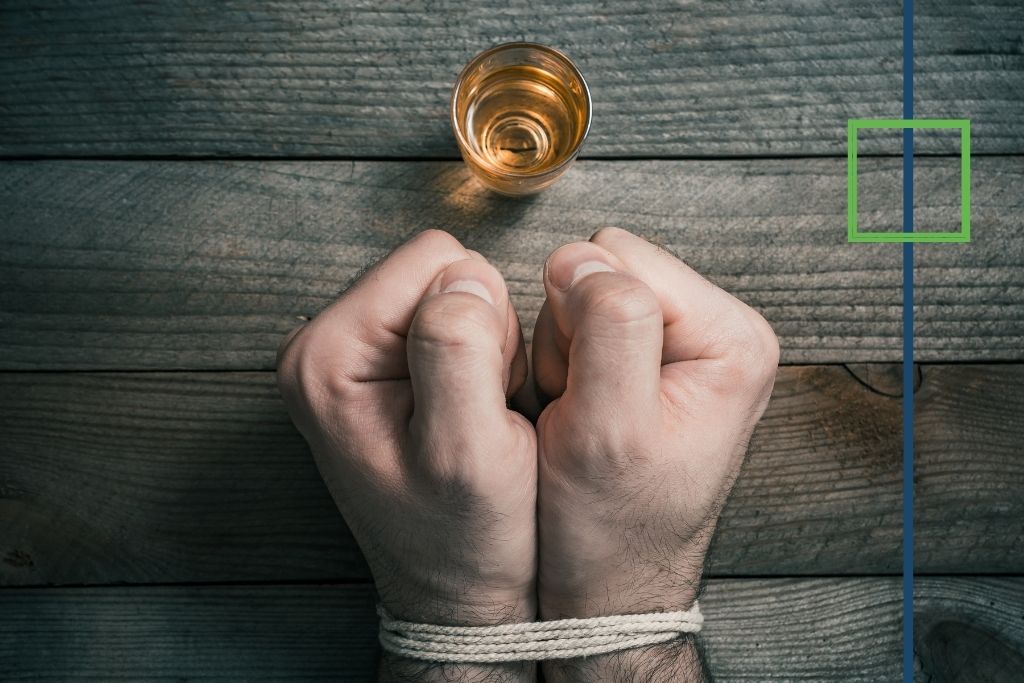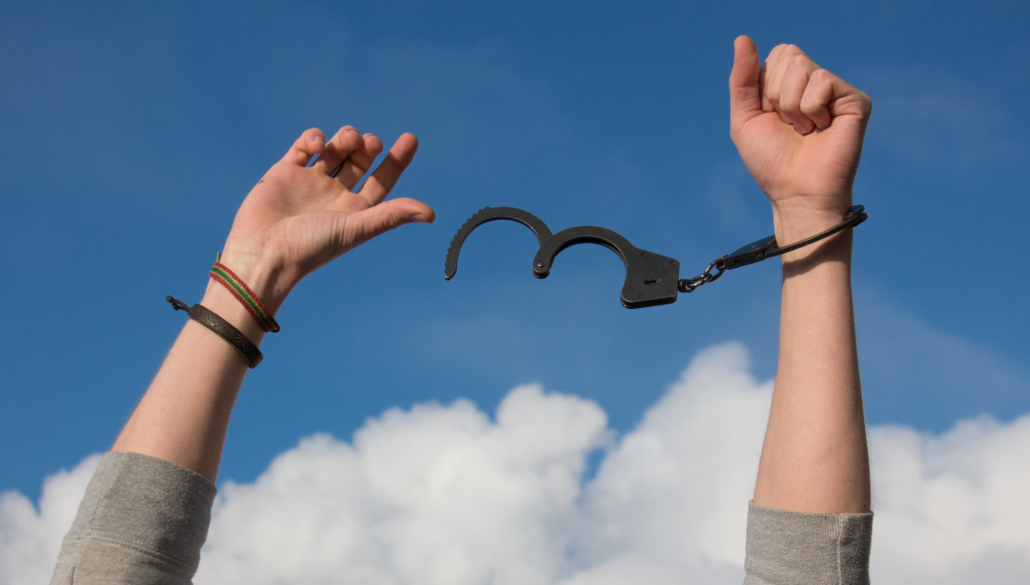Benefits of Giving Up Alcohol
You might be wondering what happens when you give up alcohol. Having a conscious decision to quit drinking alcohol involves making some significant changes in your life. If the hobbies and social activities you often partake in typically involve alcohol, you may have to give them up or perhaps replace them with non-alcohol-related pastimes. Across the board, a sober life has a wide array of benefits, including improved mental and physical health. Quitting alcohol may even reverse some of the alcohol’s damage to your body. However, quitting alcohol is a process that requires intentional strategies to eliminate it from your life.


Get Your Life Back
Find Hope & Recovery. Get Safe Comfortable Detox, Addiction Rehab & Mental Health Dual Diagnosis High-Quality Care at the We Level Up Treatment Centers Network.
Hotline (877) 378-4154Liver Relief
Alcoholic liver cirrhosis can happen over time in those who consume alcohol excessively. Alcohol liver damage such as liver cirrhosis doesn’t occur in a day, but for anyone who drinks heavily, which again is more than two drinks a day for men, and one a day for women, there are fatty changes in the liver, so when you quit drinking, those changes are reversible, and the liver can become normal again.
Because the liver is a tolerant organ, positive changes can happen within weeks of quitting alcohol. In the absence of alcohol, the liver can focus on its other jobs, such as breaking down other toxins produced by the body, metabolizing excess hormones and fats that need to be broken down.
Decrease Risk of Heart Disease
Alcohol is metabolized by the liver and an enzyme called dehydrogenases. However, when you drink in excess, the enzyme gets saturated and is metabolized by a different enzyme.
When it’s metabolized by this different pathway, it produces lots of free radicals, which is known to oxidize bad cholesterol (LDL), and when the LDL is oxidized it deposits on the carotid arteries forming blockage].
On the other hand, if you consume alcohol in moderation, alcohol doesn’t have any effect on LDL, and instead increases good cholesterol (HDL).
Drinking one or two glasses of wine once or twice a week has some health benefits, especially for men over forty. It reduces risk of heart disease. For women, you can get those benefits anytime, it’s not age-dependent.
Protect the heart with a low amount of alcohol, but increase the risk of cardiovascular disease with high amount of alcohol. To better your heart further when cutting out alcohol, it is recommended to add in exercise, which also increases good cholesterol.
Get Help. Get Better. Get Your Life Back.
Searching for Accredited Drug & Alcohol Rehab Centers Near You? Or Mental Health Support?
Even if you have failed previously, relapsed, or are in a difficult crisis, we stand ready to support you. Our trusted behavioral health specialists will not give up on you. Call us when you feel ready or want someone to speak to about therapy alternatives to change your life. Even if we cannot assist you, we will lead you wherever you can get support. There is no obligation. Call our hotline today.
FREE Addiction Hotline – Call 24/7Reduce the Risk of Cancer
The National Toxicology Program of the U.S. Department of Health and Human Services considers alcohol as a known human carcinogen (cancer-causing substance) in its Report on Carcinogens [1].
The report reiterates that a person’s risk of developing alcohol-associated cancer advances with the more alcohol they regularly consume over time. Connections are shown between drinking alcohol and the development of the following types of cancer:
- Head and neck
- Esophageal
- Liver
- Breast
- Colorectal
According to the National Center for Biotechnology Information (NCBI) [2], an estimated 3.5 percent of cancer deaths in the United States were alcohol-related.
Weight Loss
While alcohol is high in calories, and beer, wine, and mixed drinks add sugar to one’s diet, cutting it out may or may not help to lose weight. Again, it depends on what the baseline alcohol consumption is. If heavier drinkers cut alcohol for a longer period of time, they might see weight loss, less stomach fat, improvement in body composition, improvement in triglycerides (one of the fat particles in the blood).

Depending on the person, it is sometimes advised to cut back on alcohol to lose weight. It is recommended to completely eliminate alcohol for weight loss as a trial for some individuals who have optimized all other factors of their life (diet is pristine, sleep is adequate, exercise is maximal, stress is managed) to see if they are particularly sensitive to the weight gaining effects of alcohol. For example, many women around menopause show gaining weight from alcohol much easier than they did before menopause.
However, if you’re banking on quitting alcohol to help you lose weight, it’s not your best bet. It would be better to cut back on several things rather than totally eradicate them to avoid feeling deprived, which can lead to rebound drinking and weight regain.
Boost Brainpower
The best people to quit drinking alcohol are those under 21 years old, and not just for legal reasons. There’s a reason why the legal age of drinking is 21 years. College drinking is a huge problem. It can cause memory loss and interference with brain development. Alcoholics have some specific disorders of the brain, which are due to excessive alcohol drinking. Brain damage can reduce memory and concentration.
What Happens When You Give Up Alcohol? A Timeline
It’s critical to remember that everyone’s body will react differently to giving up alcohol. Therefore, our timeline should only be used as a guide to establish what you might undergo in the days and weeks after you stop drinking.
Up to 24 hours after you stop drinking
Withdrawal symptoms are possible to start within the first 24 hours of quitting drinking. Depending on the person, they might start from as little as two hours after their last drink.
Early alcohol withdrawal symptoms will be mild. They may include hand tremors and shakes, anxiety, headaches, and sweating. However, as time goes on, alcohol urges and cravings will increase and a feeling of depression and fatigue could start.
12-72 hours after you stop drinking
For some, more serious alcohol withdrawal symptoms will form after 12-24 hours. In rare, more extreme cases, you might develop delirium tremens (DTs). Symptoms could include hallucinations, seizures, and a significant increase in blood pressure and heart rate. This is a dangerous period for anyone who has stopped drinking and is experiencing alcohol withdrawal.
48-72 hours after you stop drinking
For the majority, the alcohol withdrawal symptoms will start to decrease at this point, permitting you to work more normally and manage your symptoms. However, symptoms of delirium tremens may continue for some, with a feeling of delusions and disorientation alongside other severe alcohol withdrawal symptoms like high blood pressure and heavy sweating.
Between 3 and 7 days after you stop drinking
After a few days of giving up drinking, most individuals can expect their alcohol withdrawal symptoms to stop. For the more severely affected, delirium tremens (DTs) and severe withdraalcohol wal symptoms may continue. For these individuals, medical supervision is recommended when giving up alcohol.
Comfortable Facilities & Amenities
High-Quality Addiction & Mental Health Rehabilitation Treatment
Rehab Centers TourRenowned Addiction Centers. Serene Private Facilities. Inpatient rehab programs vary.
Addiction Helpline (877) 378-4154Proven recovery success experience, backed by a Team w/ History of:
15+
Years of Unified Experience
100s
5-Star Reviews Across Our Centers
10K
Recovery Success Stories Across Our Network
- Low Patient to Therapist Ratio
- Onsite Medical Detox Center
- Comprehensive Dual-Diagnosis Treatment
- Complimentary Family & Alumni Programs
- Coaching, Recovery & Personal Development Events
What happens when you give up alcohol? – week one

Better sleep
After one week of quitting alcohol, you may see that you are sleeping better. When you drink alcohol, you normally fall straight into a deep sleep, skipping the important rapid eye movement (REM) sleep. While you are supposed to have between 6 and 7 cycles of REM sleep a night, you typically only have 1 or 2 when you’ve been drinking.
There are many benefits of adequate sleep. You will be more productive, where you can learn, and problem solves better. Your ability to control your behavior and emotions will also improve.
unities to control your food and drink intake. Sleep aids to balance the hormones that make you full or feel hungry. After drinking alcohol, your ghrelin levels (the hormone that makes you feel hungry) go up and leptin (the hormones that make you feel full) go down.
More hydrated
When you consume alcohol, you lose around 4 times as much liquid as what you actually drank. Dehydration can cause headaches, as your organs take water from the brain due to their own water loss. Potassium and salt levels also decrease, which can impact nerve and proper muscle function while also causing fatigue, headaches, and nausea.
Therefore, giving up drinking alcohol can help you keep well hydrated, which is, in turn, healthy for your brain. Your concentration and mood will be more stable, and the recurrence of headaches is likely to fall. You also won’t suffer from the effects of dehydration, such as increased fatigue and lack of motivation, so you will have more energy throughout the day.
Calories saved
If you were to give up drinking six 175 ml glasses of wine a week, you would save around 960 calories, which is the equivalent to five and a half bags of crisps or three burgers. And if you were to quit drinking six pints of average strength beer a week, you would save 1080 calories, which is similar to five chocolate bars.
What happens when you give up alcohol – week two
After two weeks of quitting alcohol, you will continue to receive the benefits of better hydration and sleep. As alcohol is an irritant to the stomach lining, after a fortnight, you will also see a reduction in symptoms such as acid reflux, where the stomach acid burns your throat.
You are also most likely to begin losing weight as a result of giving up alcohol’s empty calories. If you were to quit drinking six 175ml glasses of wine a week, you would have saved 1920 calories at this stage and 2160 if you’d quit drinking around six pints of beer.
What happens when you give up alcohol – week three
Drinking too much alcohol can cause your blood pressure to rise over time. After three to four weeks of not drinking, your blood pressure will start to reduce. Reducing your blood pressure can be crucial as it can help to lessen the risk of health problems arising in the future.
As the calories in alcohol can cause you to gain weight, giving up alcohol can also help you to reduce your blood pressure as a result of the weight you can potentially lose. At this point, if you’d previously been drinking six 175ml glasses of wine a week, you would have lost 2880 calories over three weeks. And if you’d been drinking six pints of lager a week, you would have lost 3240 calories.
What happens when you give up alcohol – week four
Giving up alcohol will have a favorable impact on your skin due to you having better levels of hydration. As more water will have been absorbed rather than wasted, you are likely to have more hydrated-looking skin, as well as reduced eczema and dandruff.
Removing alcohol from your diet for four weeks can also help to improve your liver function as your liver will start to rid excess fat. If your liver function is not too badly affected by alcohol, it can recover within 4-8 weeks.
With the liver playing a part in over 500 vital processes, you also give your body a better chance of removing contaminants, converting food nutrients, storing minerals and vitamins.
World-class, Accredited, 5-Star Reviewed, Effective Addiction & Mental Health Programs. Complete Behavioral Health Inpatient Rehab, Detox plus Co-occuring Disorders Therapy.
CALL (877) 378-4154End the Addiction Pain. End the Emotional Rollercoaster. Get Your Life Back. Start Drug, Alcohol & Dual Diagnosis Mental Health Treatment Now. Get Free No-obligation Guidance by Substance Abuse Specialists Who Understand Addiction & Mental Health Recovery & Know How to Help.
Do You Need Help to Stop Drinking?
Whether you choose to tackle your alcoholism by going to inpatient rehab, getting therapy, or taking a self-directed treatment approach, support is crucial. Don’t try to go it alone. Recovering from alcohol abuse or addiction is much easier when you have people you can lean on for comfort, encouragement, and guidance. Support can come from family members, friends, counselors, other recovering alcoholics, your healthcare providers, and people from your faith community.
If you want to learn more about what happens when you give up alcohol and if you’re looking for long-term solutions to staying sober, the alcohol rehab treatment at We Level Up inpatient rehab New Jersey may be able to help. Trusted detox and rehab facilities might actually be the safest place for someone with a substance use disorder right now. Get started at the ideal location during the ideal time to get sober. Contact We Level Up dual diagnosis programs in New Jersey today.

Experience Transformative Recovery at the We Level Up Treatment Center.
See our authentic success stories. Get inspired. Get the help you deserve.



Start a New Life
Begin with a free call to an addiction & behavioral health treatment advisor. Learn more about our dual-diagnosis programs. The We Level Up treatment center network delivers various recovery programs at each treatment facility. Call to learn more.
- Personalized Care
- Caring Accountable Staff
- Comfortable Amenities
- Licensed & Accredited
- Renowned w/ 5-Star Reviews
We’ll Call You
Sources:
[1] U.S. Department of Health and Human Services – https://ntp.niehs.nih.gov/ntp/roc/content/profiles/alcoholicbeverageconsumption.pdf
[2] NCBI – https://pubmed.ncbi.nlm.nih.gov/23409916/